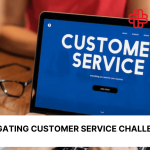Every good business has public relations and corporate communications at the centre of its business performance. The internet has revolutionised public relations positively and negatively, so knowing how reputation is controlled and communicated is crucial. It is now possible for a company to be heard worldwide in minutes, which can be dangerous if the brand and reputation are not well managed. The modern tools used on social media and other news mediums are vast and complex, so a deep understanding is required to ensure local, national and international communications are presented well.
The course will help delegates gain an excellent working knowledge of the main techniques needed to manage a company's reputation and the most common tools used in what is described as a changing and complicated media arena. The PR professional is required to understand how to manage knowledge for media consumption effectively. You will learn how the external perceptions of the company are formed and how you need to drive the shaping of such by using first-class communications both internally and externally. You will also learn to develop a PR strategy backed up by a clear action plan.
Upon completion of this course, participants will be able to:
- Understand the strategy and context of corporate affairs
- Be confident in communicating with stakeholders
- Understand the importance of stakeholder programmes
- Organising regular communication activities focused on PR
- Be confident examining tools developed for corporate affairs
- Be confident with developing then coordinating plans and strategies
- Show good evaluation skills in research
- Show timeline planning and steps needed
- Be confident in managing corporate reputation on a global scale
- Understand local and national reputation differences
- Measure behaviours and attitudes to extract benefits
This course is for:
- Public Relations Managers
- Supervisory PR roles
- Public-facing roles
- Marketing professionals
- Sales managers
- PR officers
- Human resource/personnel/training officers
- PR Administration Staff
- Roles with internal communications
- Roles with external communications
Teaching occurs in various settings, including face-to-face classrooms, and will ensure that participants can expand their knowledge of the subject and increase their skill set. The course is delivered via various methods by a specialist tutor. This will include PowerPoint presentations, reviewing articles and other relevant materials, group or individual exercises and discussions. There may be some independent work set, and the course will require submitting articles to demonstrate understanding and an end-of-course test. Note-taking is encouraged, and you are welcome to use electronic devices to do this.
The course manual will form part of the learning but will give you references for the future. You are encouraged to ask questions and, if needed, spend time one-on-one with your tutor to review any issues. During your time in the classroom, you can network with peers in similar roles.
Day 5 of each course is reserved for a Q&A session, which may occur off-site. For 10-day courses, this also applies to day 10
Section 1: With Communication Comes Great Power
- What is a public relations strategy
- How do we create a PR strategy
- Understanding how and when to deploy PR
- The importance of brand identity and image within a company
- How to establish your identity and image as a positive
- Understanding internal reputation management
- Understanding external reputation management
- The role of the PR manager
Section 2: The Importance of Consistent Messages, Internal and External
- Employees and employer's internal PR management
- Segmenting and prioritising the different audiences
- What is the communication journey for stakeholders?
- Communication a message successfully
- The magic of storytelling to generate interest in the message
- Social media - empower your employees
- How to create impactful and explicit content
- Senior leadership - how to develop credibility and trust
Section 3: Identify and Manage Risks & Threats
- Don’t let the unexpected catch you out - planning is key
- Managing risks to reputation through communication activities
- How to repair damage to your reputation
- What are influences and opinion formers?
- Identify key decision-makers and engage with them.
- Building sustainable relationships with influences and decision-makers.
- Understanding programmes for VIPs and political contacts
- How to successfully monitor political activities
Section 4: Corporate Communications and PR Within the Corporate Structure
- Best practices for media relations
- Event management - how to be effective
- Crisis management toolkit - why you need one
- How to host a VIP visit
- Practising good protocols
- Activities and roles for financial PR
- The challenges of communication on a multinational and global level
Section 5: How to Implement Persuasive, Powerful Planning
- PR planning: The ten stages
- PR activities should be driven by market research
- How to ensure activities have measurable objectives
- Knowing how to identify the core message
- Communications toolkits - practical development
- Developing practical communication toolkits
- PR activities - scheduling and planning
- How to measure outputs, outcomes and values of activities
Upon successful completion of this training course, delegates will be awarded a Holistique Training Certificate of Completion. For those who attend and complete the online training course, a Holistique Training e-Certificate will be provided.
Holistique Training Certificates are accredited by the British Assessment Council (BAC) and The CPD Certification Service (CPD), and are certified under ISO 9001, ISO 21001, and ISO 29993 standards.
CPD credits for this course are granted by our Certificates and will be reflected on the Holistique Training Certificate of Completion. In accordance with the standards of The CPD Certification Service, one CPD credit is awarded per hour of course attendance. A maximum of 50 CPD credits can be claimed for any single course we currently offer.
- Course Code PM2-106
- Course Format Classroom, Online,
- Duration 5 days














